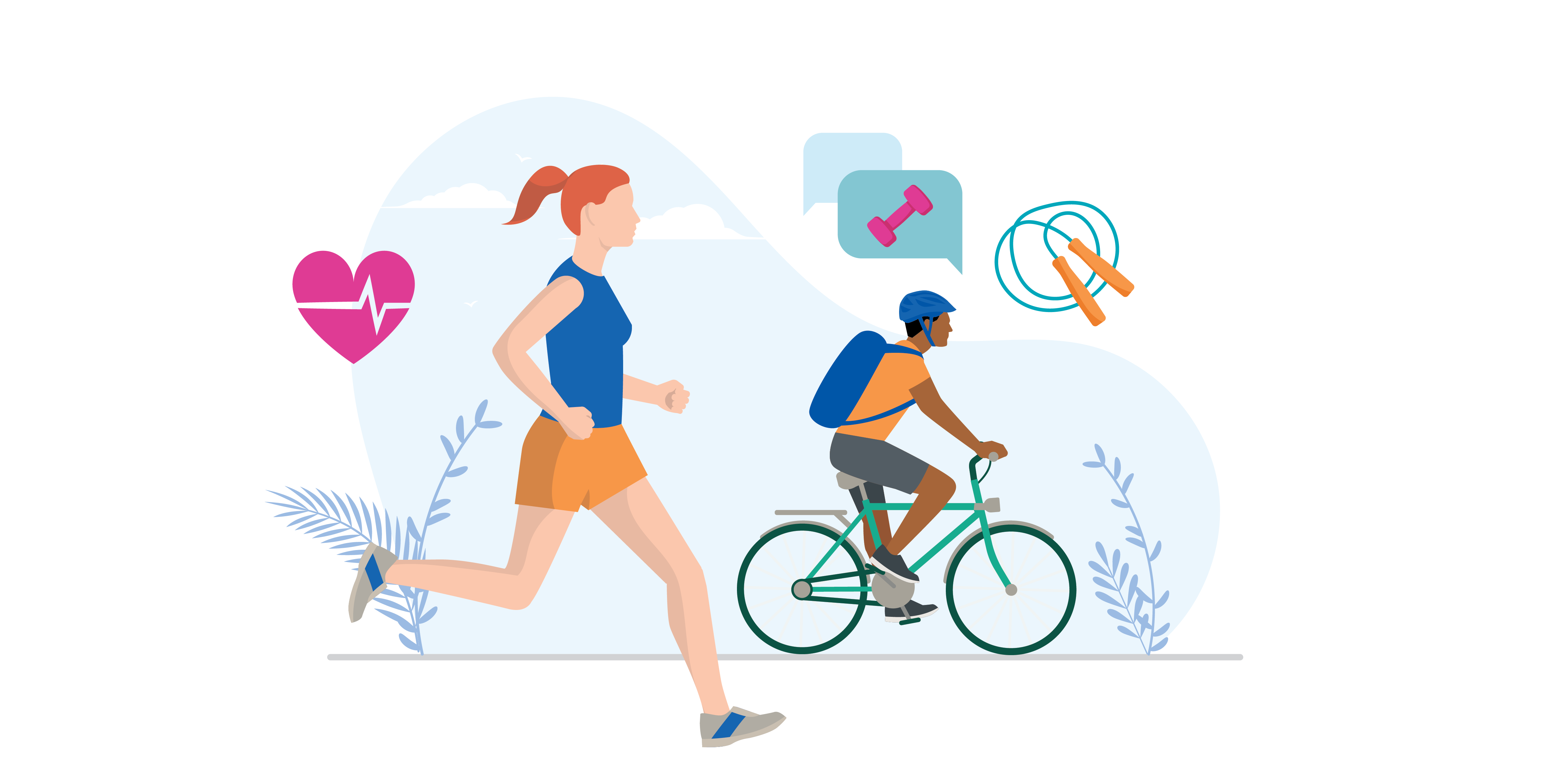Self care
Actions you can take to reduce your risk of Cardiovascular Disease and reduce your blood pressure.

Last reviewed 25 October 2024.
There are many ways to reduce your risk of cardiovascular disease, including high blood pressure (hypertension) and a high or irregular heart rate (atrial fibrillation). Why not take a look at these actions below and work on the ones appropriate to you?
Contents
Smoking
Smokers are almost twice as likely to have a heart attack compared with people who have never smoked. Smoking increases the risk of developing heart diseases, including coronary heart disease and stroke.
If you are a smoker, stopping smoking is the most important step you can take to protect your heart's health. Take a look at our Stop Smoking page for more advice, as well as national and Surrey resources to quit smoking and make a difference for your heart health.
How smoking affects your heart
Alcohol
Drinking alcohol can cause abnormal heart rhythms, high blood pressure, damage to your heart muscle and other diseases such as strokes, liver problems and some forms of cancer.
Alcohol is high in calories, which can lead to weight gain. It also lowers your inhibitions, which might mean you might find it harder to stick to your healthy eating plans when you have been drinking.
Fortunately, there are plenty of resources to help you cut down on alcohol or stop drinking altogether. Take a look at our alcohol page for some local and national resources to get you started.
Stress
Stress contributes to high blood pressure, which is also a risk factor for heart attack and strokes. Some people may attempt to cope with stress by using risky behaviours, such as smoking, drinking too much alcohol or overeating, which all increase your risk of heart disease.
While there is no evidence to suggest that stress causes coronary heart disease or heart attacks, if you have an existing coronary heart disease or experience feelings of anxiety or stress, it may bring on symptoms like angina.
Spotting the early signs of stress can also help you to manage your stress levels, preventing them from becoming worse and potentially causing serious complications, such as high blood pressure.
There are a number of mental health providers available in Surrey that can provide support to help you manage stress more effectively.
Salt
Eating too much salt can cause high blood pressure, which increases your risk of heart attack or stroke.
Aim to eat no more than six grams of salt a day. Most of the salt we consume is already in food. Things such as condiments, sauces, processed meats, snacks and cereals can contain lots of salt.
Choosing low salt alternatives and cooking with pepper, herbs, spices and chilli rather than salt are also great ways to reduce the amount that you consume.
There are a few easy ways to check how much salt is in food. Take a look at our weight management page for some resources, advice and tips.
Why is too much salt bad for you?
Weight
Research shows that being overweight can raise blood cholesterol levels, increase blood pressure and increase risk of developing type 2 diabetes.
Even if you don't have any of these conditions, it is important to maintain a healthy weight to reduce your risk of developing them in the future.